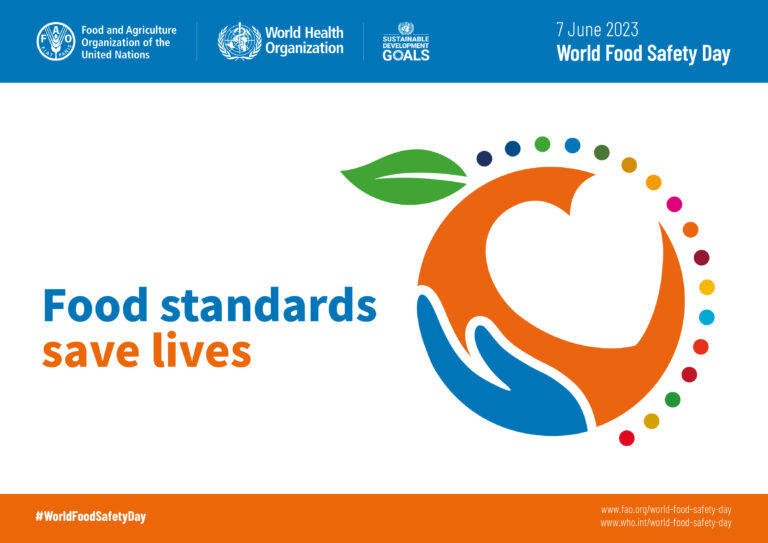Today, June 7, we celebrate the fifth annual World Food Safety Day. The day is designated each June to “draw attention, and inspire action, to help prevent, detect and manage foodborne risks,” with this year’s FAO-designated theme being “Food Standards Save Lives.” But it should go without saying that we should focus on food safety every day and apply – and go beyond – food standards every year.
Everyone has a role to play in preventing foodborne illness, but the food industry has an unquestionably higher role, literally ensuring the safety of millions each day. While the millions of consumers provides millions of reasons that food safety must be taken seriously, it also can help to provide a few statistics to bring that point home, including:
- Over 200 diseases are caused by eating food contaminated with bacteria, viruses, parasites, or chemical substances.
- An estimated 600 million – almost 1 in 10 – people fall ill after eating contaminated food each year and 420,000 die. Children under 5 make up only 9% of the population but carry 40% of the foodborne disease burden with 125,000 dying every year.
- An estimated 1.3 million people die each year directly due to bacterial antimicrobial resistance (AMR). Improving hygiene practices in the food and agricultural sectors reduces emergence and spread.
As a worldwide food standard upon which a vast majority of food regulations and standards, Codex Alimentarius has 236 standards, 84 guidelines, and 56 codes of practice. For another widely recognized standard, the GFSI-recognized schemes were designed to create a program in which everyone would accept one standard and thus save multiple on-site audits. GFSI typically cover 14 categories of requirements, such as sanitation, maintenance, pest control, water supply, building construction, air quality, etc.
While such standards provide a strong basis for food safety, they are just that – the basics. Going above and beyond the standards not only adds to your food safety and brand protection, major-retailer supplier requirements often demand it. For example, one company recently updated its supplier requirements in just such a way:
- Not only must suppliers be PCQI or HACCP certified, these must be renewed or re-done every five years.
- In addition to appropriately located handwashing stations in the processing area, they must be hands-free and dispense warm water within 15 seconds.
- Traceability exercises must be conducted at least twice a year, and account for all product within two hours.
- With few exceptions, suppliers must have an X-ray detection device for finished product with a rejection mechanism.
Whether or not your upstream customers have strict requirements, there are reasons for – and benefits to – ensuring the utmost in food safety. A few that the FAO includes in its publication are:
- Food safety has a direct impact on health. Safe food allows for the uptake of nutrients and promotes long-term human development. Only when food is safe can it meet nutritional needs and help adults to live an active and healthy life and children to grow and develop.
- Food standards help producers. Implementing standards, guidelines, and codes of practice along the food supply chain ensures that food is safe and nutritious when it reaches the consumer, contributing to consumer confidence in the products.
- Food safety impacts positively on economies and livelihoods. By ensuring that commodities meet – or exceed – food standards, food providers gain the confidence of the market and secure their income.
But perhaps the best reason of all is that which FAO included in its food industry focus relating how Food Standards [applied by the food industry] Save Lives to the application, stating “Whether you define the food safety and quality standards of your organization, implement the quality and safety standards, required by national authorities, or communicate food safety messages to staff, food safety and consumer protection are in your hands.”





